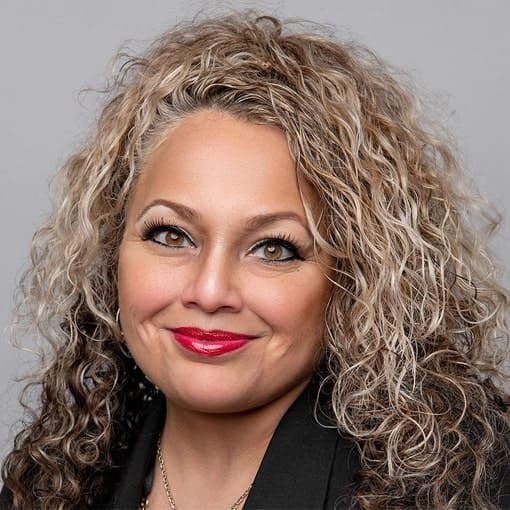
Prof. Gloria Segovia
SSW, BA, BSW, MSW, RSW, RP, SFBT, CRPO, GOTTMAN CERT (In motion) EFT (In motion).
Senior Therapist/University Graduate.
Supervisor (York University: BSW/MSW).
Diverse Experience: Over 15 years of experience with children, youth, families, and couples.
Versatile Therapeutic Techniques: Incorporates trauma-informed care, recovery models, and CBT.
Bilingual Therapy Expertise: Offers therapy in both English and Spanish.
Empowerment Through Strength: Harnesses your inherent strengths for transformative healing.
Unlock Hope and Healing with a Complimentary 20-Minute Phone Call Consultation
Are you ready to take the first step towards a brighter future? At AERCS, we're here to support you on your path to well-being. Our complimentary intake call is your opportunity to connect with us, confidentially share your journey, and discover the transformative support we offer. By taking this call, you're not just talking; you're taking control of your well-being, paving the way for tailored therapy that can change your life. Don't wait—book your call today and embrace the healing journey that awaits you.
Gloria Segovia is an addiction counselor.
Gloria is an English and Spanish language Registered Psychotherapist and Clinical Social Worker.
Gloria Segovia has over fifteen years’ experience and thousands of hours of clinical social work providing psychotherapy to children, youth, families, and couples. She has worked in private practice as well as in the hospital sector. As an educator, she supervises masters-level social work students in their practicum through York University, and she supervises master level clinicians and qualifying psychotherapists as part of her role as a clinical director. Connect with Gloria Segovia on LinkedIn.
Gloria is empathic and compassionate and has more than a decade of experience helping people address mental health and addiction challenges. She specializes in addiction and relapse prevention as well as couples counselling. Gloria is registered with the Ontario College of Social Workers and Social Service Workers and the College of Registered Psychotherapy of Ontario.
Gloria takes an eclectic approach to therapy, utilizing best practices in trauma and recovery counseling. She helps people suffering from anxiety, personality disorders, PTSD, relapse prevention, and those with relationship concerns.
Gloria is committed to lifelong learning and professional development. She is trained in Solution Focus Brief Therapy (SFBT), Cognitive Behavioral Therapy (CBT), Harm reduction, Emotion Focus Therapy (ongoing) and Gottman marital Approach (Certified Level 1, 2 and 3).
Gloria works hard to promote a safe environment.
Gloria Segovia’s vast experience in so many different helping-roles has given her the opportunity to better listen-to and understand individuals of diverse backgrounds. She believes it’s important to recognize and respect humanity’s wide range of differences and she’s committed to fostering a safe environment which promotes equality, inclusion, and diversity.
Gloria believes in strengths-based therapy
Gloria believes we all have the capacity to grow and change and this leads her to focus on her client’s strengths, in addition to their challenges. Her therapy empowers clients to address their immediate concerns while also helping them find greater connection with the community and more meaning in their lives.
Gloria is nonjudgmental
She believes clients should be considered ‘partners’ in their own therapy and she strives to work collaboratively with her patients to ensure their goals are being addressed. It’s her opinion that an honest exchange between client and therapist is all important in helping achieve their mutually-agreed-upon goals.
Gloria is much more than just a good listener
Gloria Segovia is precocious and brings her curiosity to work. She really tries to understand her client’s experiences and listens carefully to her patients as they explain their feelings and tell their stories. People come away feeling more understood and validated which helps them achieve their goals.
Give Us a Call...
Get In touch.
Ask Any Question.
AERCs Orangeville Location
873209 5 Line E, Orangeville, ON L9W 6A4
AERCs Toronto Location
1849 Yonge St, Floor 1, Suite 914, Toronto, ON M4S 1Y2
AERCs Mississauga Location
89 Queensway W #226, Mississauga, ON L5B 2V2
AERCS Partners With...


